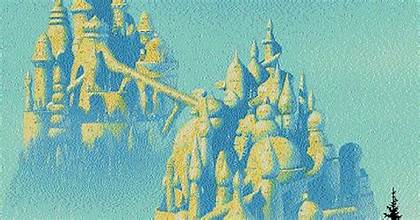
Science fiction has always been a genre that pushes the boundaries of imagination, exploring what lies beyond the known universe and the human condition. Despite the rapid evolution of literature and technology, classic science fiction stories continue to captivate readers in 2024. This enduring appeal is a testament to the genre’s ability to address fundamental human questions, its innovative storytelling techniques, and its profound impact on contemporary science fiction. In this article, we’ll delve into the reasons why classic science fiction stories still hold such a powerful allure.
1. Enduring Themes and Universal Questions
At the heart of classic science fiction lies a deep exploration of themes that resonate universally. Works by authors such as Isaac Asimov, Arthur C. Clarke, and Philip K. Dick often grapple with profound questions about the nature of humanity, the ethics of technology, and the possibilities of extraterrestrial life. These themes remain relevant today as society continues to confront similar issues.
For instance, Asimov’s “Foundation” series tackles the concept of societal collapse and the potential for human resilience and renewal. This theme echoes in contemporary discussions about the future of our own civilization. Similarly, Clarke’s “2001: A Space Odyssey” explores the relationship between humanity and artificial intelligence, a topic that has become increasingly pertinent with the rise of AI technologies.
By addressing timeless questions, classic science fiction offers readers insights that are as relevant now as they were when the stories were first written.
2. Innovative Storytelling Techniques
Classic science fiction is renowned for its innovative storytelling techniques, which have influenced countless writers and creators in the genre. The imaginative world-building, complex plots, and speculative concepts found in these works have set a high standard for storytelling.
For example, H.G. Wells’ “The War of the Worlds” introduced the concept of Martian invasions with a level of detail and urgency that was groundbreaking for its time. Wells’ use of scientific plausibility and social commentary paved the way for future science fiction narratives.
Likewise, Frank Herbert’s “Dune” is celebrated for its intricate world-building and exploration of political and ecological themes. Herbert’s ability to create a fully realized universe with its own history, culture, and politics has inspired numerous subsequent works and continues to captivate readers.
These innovative techniques not only shaped the genre but also set a benchmark for contemporary science fiction, making classic works essential reading for enthusiasts and scholars alike.
3. Influence on Modern Science Fiction
The impact of classic science fiction on modern literature and media is undeniable. Many contemporary science fiction stories draw inspiration from the themes, concepts, and narrative structures established by early pioneers in the genre.
For instance, the cyberpunk genre, which gained prominence in the 1980s, owes much to the groundwork laid by classic authors like William Gibson, who was influenced by earlier works. Gibson’s seminal work, “Neuromancer,” built upon the foundations established by classic science fiction to explore themes of virtual reality and artificial intelligence.
Similarly, modern space operas and speculative fiction often reference or build upon concepts introduced by authors such as Clarke and Asimov. This ongoing dialogue between classic and contemporary works ensures that classic science fiction remains a vibrant and relevant part of the genre.
4. Cultural and Historical Significance
Classic science fiction stories also hold cultural and historical significance, offering a window into the past and reflecting the concerns and aspirations of their time. Reading these works provides valuable insights into the historical context in which they were written and the way they shaped public perceptions of science and technology.
For example, George Orwell’s “1984” not only serves as a cautionary tale about totalitarianism but also reflects the anxieties of the post-World War II era. Orwell’s vision of a dystopian future has had a lasting impact on political discourse and remains relevant in discussions about surveillance and privacy.
Similarly, Aldous Huxley’s “Brave New World” offers a critique of consumerism and technological advancement, themes that continue to resonate in today’s society. By examining these works, readers gain a deeper understanding of the historical and cultural forces that influenced their creation.
5. Timeless Characters and Worlds
The characters and worlds created by classic science fiction authors have a timeless quality that continues to engage readers. These characters often grapple with complex moral dilemmas, personal struggles, and existential questions, making them relatable across generations.
Take, for example, the character of HAL 9000 from Clarke’s “2001: A Space Odyssey.” HAL’s interactions with the human crew of the spaceship Discovery One raise questions about artificial intelligence, autonomy, and trust. This character remains a compelling symbol of the ethical challenges posed by advanced technology.
Similarly, the inhabitants of Herbert’s “Dune” universe, such as Paul Atreides and Lady Jessica, are multifaceted and enduring figures whose struggles with power, destiny, and survival continue to captivate readers. The rich, immersive worlds created by these authors provide a sense of escapism while also prompting reflection on real-world issues.
6. The Legacy of Classic Science Fiction
The legacy of classic science fiction extends beyond the realm of literature. Many of these stories have been adapted into films, television shows, and other media, further cementing their place in popular culture. These adaptations often introduce classic narratives to new audiences and reinterpret them for contemporary sensibilities.
For example, the film adaptations of Philip K. Dick’s works, such as “Blade Runner” (based on “Do Androids Dream of Electric Sheep?”), have had a significant impact on the science fiction genre and visual storytelling. These adaptations highlight the enduring relevance of classic science fiction and its ability to inspire and engage audiences across different media.
The influence of classic science fiction also extends to the fields of science and technology. Many scientists and innovators have cited classic science fiction as a source of inspiration for their work, demonstrating the genre’s role in shaping future possibilities.
Conclusion
In 2024, classic science fiction stories continue to captivate readers because of their exploration of enduring themes, innovative storytelling techniques, and profound influence on modern literature and culture. These works offer a rich tapestry of ideas and concepts that remain relevant in our rapidly changing world. As we look to the future, the legacy of classic science fiction serves as a reminder of the genre’s ability to challenge our imaginations and inspire us to envision new possibilities. Whether through their cultural significance, timeless characters, or lasting impact on contemporary science fiction, these stories remind us why they are considered timeless classics.












